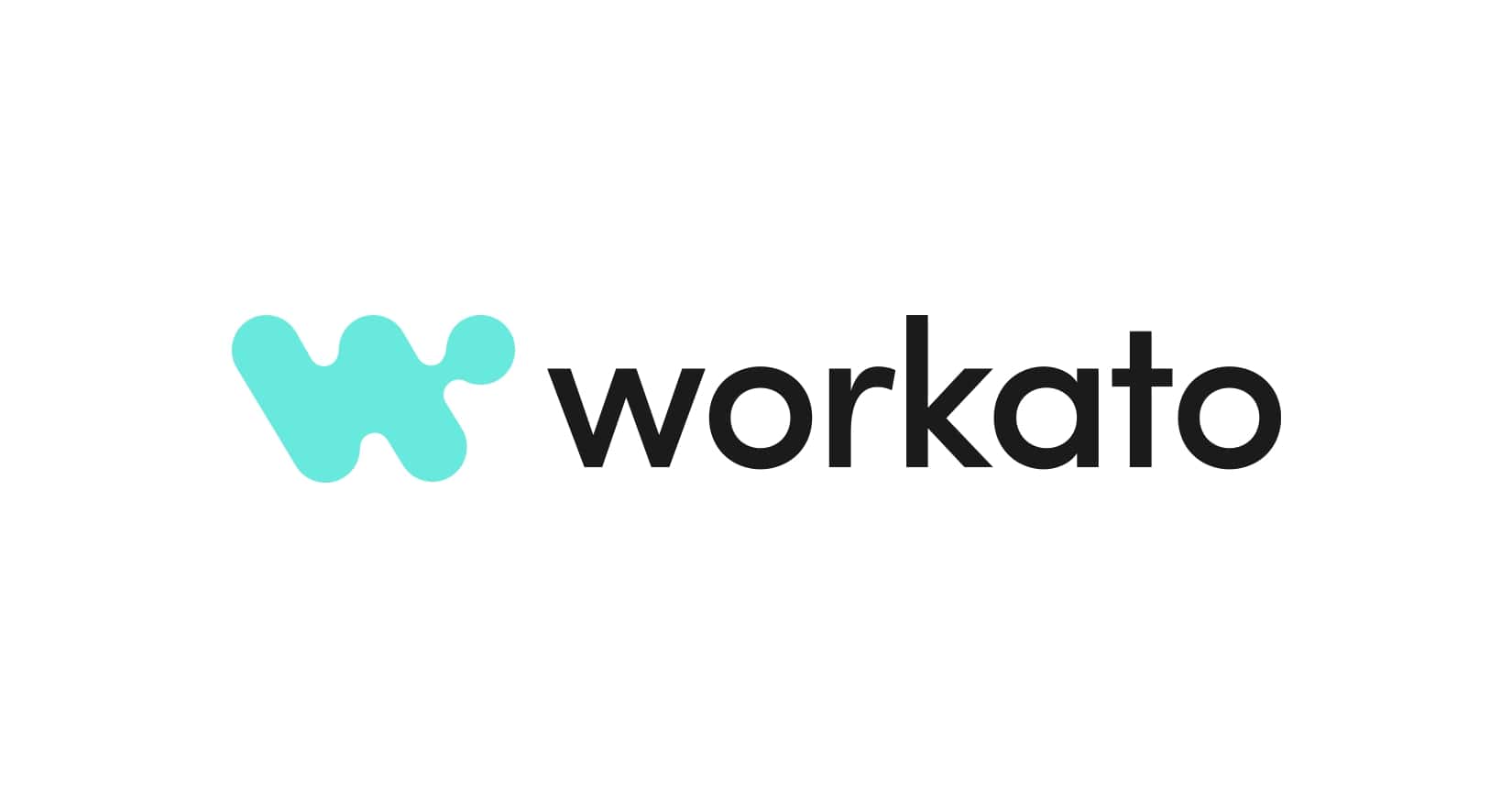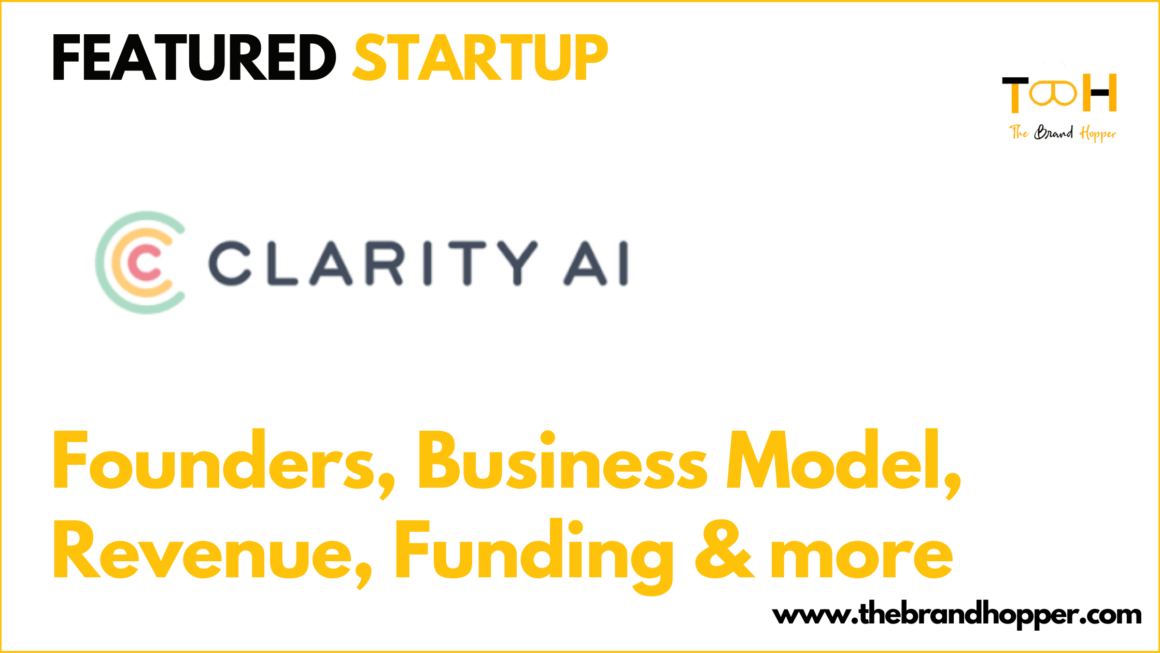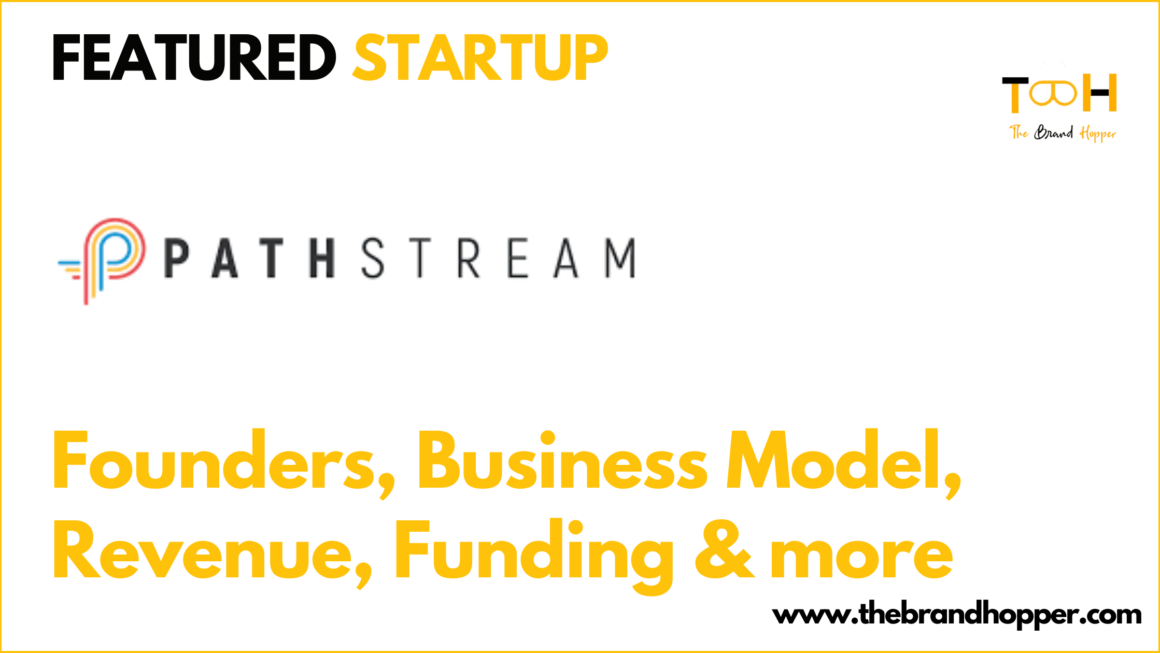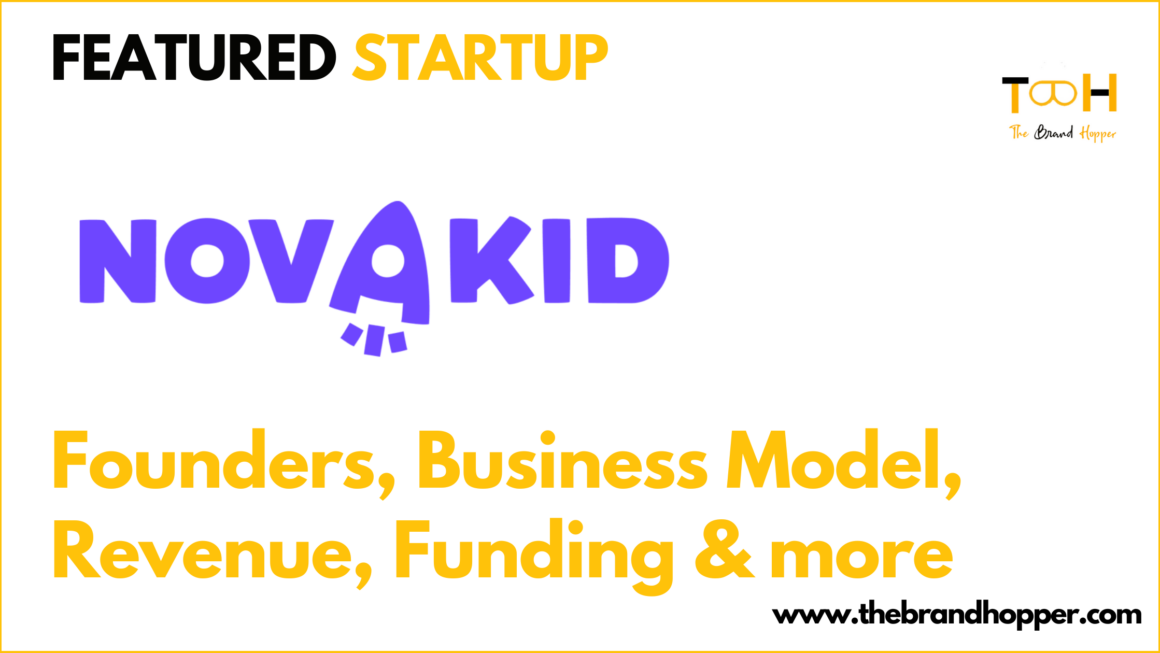Workato is a low-code automation platform that helps businesses connect their applications and automate their workflows. The company’s mission is to “enable everyone to automate.”
Workato was founded in 2013 by Vijay Tella, Gautham Viswanathan, and Harish Shetty. The company is headquartered in Mountain View, California, and has offices in San Francisco, London, and Bangalore.
Workato’s platform allows businesses to connect any application, regardless of its size or complexity. The platform also provides a drag-and-drop interface that makes it easy to create automations.
Workato’s customers include some of the world’s leading companies, such as Coca-Cola, GE, and PwC. The company has raised over $420 million in funding from investors such as Altimeter Capital, Tiger Global Management, and Accel Partners.
Workato is a leading provider of low-code automation platforms. The company’s platform is easy to use and can be used to automate a wide variety of workflows. Workato is well-positioned for continued growth in the years to come.
Here are some of the key features of Workato’s platform:
- Low-code: Workato’s platform is a low-code platform, which means that it does not require users to have extensive programming skills.
- Drag-and-drop interface: Workato’s platform has a drag-and-drop interface that makes it easy to create automations.
- Connection to any application: Workato’s platform can connect to any application, regardless of its size or complexity.
- Reusable building blocks: Workato’s platform provides reusable building blocks that can be used to create automations.
- Enterprise-grade security: Workato’s platform is enterprise-grade secure, and it meets the security requirements of even the most demanding organizations.
Workato’s platform is a powerful tool that can help businesses automate their workflows and improve their efficiency. The platform is easy to use and can be used to automate a wide variety of workflows. Workato is well-positioned for continued growth in the years to come.
Here are some of the key factors that have contributed to Workato’s success:
- The growth of the automation market: The automation market is growing rapidly, and this is creating a growing demand for solutions like Workato’s.
- The ease of use of Workato’s platform: Workato’s platform is easy to use, which makes it accessible to a wide range of users.
- The wide range of applications that Workato can connect to: Workato can connect to a wide range of applications, which makes it a versatile tool for businesses.
- The enterprise-grade security of Workato’s platform: Workato’s platform is enterprise-grade secure, which makes it a reliable choice for businesses.
Workato’s success is a testament to the company’s innovative platform and its commitment to providing businesses with the tools they need to automate their workflows.
Founding History of Workato
Workato has transformed the way businesses integrate and automate their workflows. Founded in 2013 by Vijay Tella, Harish Shetty, Gautham Viswanathan, Dimitris Kogias and Alexey Timanovskiy, Workato was born out of the founders’ vision to empower organizations with a robust and user-friendly solution to seamlessly connect their apps and data, enabling them to streamline processes, boost productivity, and drive digital transformation. With a relentless focus on innovation and customer success, Workato has quickly emerged as a leading player in the integration automation space, helping businesses of all sizes achieve new levels of efficiency and agility.

Founders’ Journey:
Vijay Tella, Workato’s CEO, brought extensive experience in building successful tech startups to the table. Prior to co-founding Workato, Vijay held leadership roles at companies like Oracle and SAP. During his tenure at Oracle, he observed the increasing complexity and fragmentation of enterprise software ecosystems, which often led to integration challenges for businesses. This insight sparked the idea for Workato – a platform that would bridge the gap between disparate applications and data sources seamlessly.
Gautham Viswanathan, Workato’s Chief Product Officer, brought his expertise in enterprise integration and software engineering to the founding team. Before Workato, Gautham served as the Chief Architect at TIBCO Software, where he gained valuable insights into the complexities of enterprise integration. His technical acumen and passion for simplifying integration challenges perfectly complemented Vijay’s vision for Workato.
Harish Shetty, another co-founder of Workato, brought his wealth of experience in engineering and product development to the founding team. Prior to Workato, Harish worked at companies like Google and Microsoft, where he honed his skills in building scalable and user-friendly software solutions. His expertise in engineering and product strategy played a crucial role in shaping Workato’s platform into a user-centric and innovative automation solution.
The Birth of Workato:
Workato was officially founded in 2013 in Cupertino, California, with a mission to revolutionize automation and integration for businesses. The founders envisioned a platform that would democratize integration, making it accessible to all users, regardless of technical expertise. Unlike traditional integration solutions that required significant coding and IT involvement, Workato aimed to empower business users to create their own automated workflows using a no-code, visual interface.
Pioneering No-Code Integration:
Workato quickly gained attention and recognition in the industry for its pioneering approach to no-code integration. By leveraging the power of no-code technology, Workato democratized automation, enabling business users, citizen integrators, and IT professionals alike to build complex workflows without the need for extensive coding skills. This user-friendly approach set Workato apart from traditional integration platforms and appealed to a wide range of businesses seeking faster and more agile automation solutions.
Rapid Growth and Expansion:
As the demand for integration automation solutions grew, Workato experienced rapid growth and expansion. The platform attracted businesses across various industries, from small startups to large enterprises, seeking to optimize their workflows, enhance data visibility, and improve collaboration across departments. Workato’s ability to integrate with thousands of apps, including popular platforms like Salesforce, Microsoft Dynamics, and Slack, further solidified its position as a market leader.
Continuous Innovation:
Workato’s journey has been marked by a relentless pursuit of innovation. The company continues to invest heavily in research and development, constantly enhancing its platform with new features and capabilities. Workato’s commitment to innovation has been recognized by leading industry analysts, earning the platform numerous awards and accolades.
Workato Features
Workato is a powerful integration automation platform that enables businesses to connect, automate, and optimize their workflows across various applications and data sources. With its no-code, user-friendly interface and advanced capabilities, Workato empowers both business users and IT professionals to create complex and sophisticated integrations. Here are the key features of Workato explained in detail:
No-Code Integration: Workato’s no-code integration capability allows users to create and manage integrations without the need for extensive coding knowledge or IT support. This user-friendly approach democratizes integration, enabling business users, citizen integrators, and IT teams to collaborate seamlessly and build powerful workflows effortlessly.
Pre-Built Integrations: Workato provides a vast library of pre-built integrations called “recipes.” These recipes are templates for common integration use cases, such as connecting CRMs with email marketing platforms or syncing data between applications. Users can easily customize these pre-built recipes to match their specific business requirements, saving time and effort in building integrations from scratch.
Connectors to Thousands of Apps: Workato offers a wide range of connectors to popular business applications, including CRM, ERP, marketing automation, project management tools, and more. These connectors allow users to connect to thousands of apps seamlessly, making it easy to create integrated workflows that span across multiple platforms.
Advanced Data Mapping and Transformation: Workato’s data mapping and transformation capabilities enable users to map data fields between different applications and perform data transformations to ensure that information is transferred accurately and consistently. This ensures that data remains structured and usable across all integrated applications.
Triggers and Actions: Workato’s automation is based on triggers and actions. Users can set up triggers to initiate workflows when specific events occur, such as a new lead being created or an email being received. Actions, on the other hand, define the tasks that should be executed as a response to triggers, such as updating records or sending notifications.
Conditional Logic and Filters: Workato allows users to implement conditional logic and filters within their workflows. This enables users to control the flow of data and define specific conditions under which certain actions should be taken. By using conditional statements, users can customize the behavior of their integrations and automate more complex scenarios.
Error Handling and Monitoring: Workato provides robust error handling capabilities, allowing users to monitor and troubleshoot integration errors in real-time. Users can set up custom error-handling workflows to manage exceptions and ensure data integrity.
Real-Time and Batch Processing: Workato supports both real-time and batch processing, depending on the nature of the integration. Real-time integrations ensure that data is synchronized instantly between applications, while batch processing enables users to perform bulk data transfers at scheduled intervals.
Enterprise-Grade Security and Compliance: Workato prioritizes data security and compliance. The platform adheres to industry-leading security standards, ensuring that data remains protected throughout the integration process. Workato also offers role-based access control and encryption capabilities to further enhance data security.
Reporting and Analytics: Workato provides comprehensive reporting and analytics features that allow users to track and analyze integration performance. Users can gain valuable insights into integration success rates, data flow, and processing times, enabling them to optimize workflows and improve overall efficiency.
In conclusion, Workato’s features offer a robust and flexible solution for businesses seeking to automate and optimize their workflows. From its no-code integration capabilities to pre-built recipes, data mapping, and real-time processing, Workato empowers organizations to streamline operations, enhance productivity, and achieve seamless integration across various applications and data sources.
Business Model of Workato
Workato operates under a business model that centers around providing a comprehensive integration automation platform to businesses of all sizes and industries. The company’s business model is designed to cater to diverse customer needs while ensuring scalability, flexibility, and strong revenue generation. Here are the key components of Workato’s business model explained in detail:
Subscription-Based Model: Workato primarily follows a subscription-based pricing model. Customers pay a recurring fee to access and utilize the platform’s integration automation services. The subscription model offers different tiers or plans based on the scope of features, the number of users, and the level of support needed. This approach allows customers to choose a plan that aligns with their specific requirements, offering flexibility to businesses of varying sizes and integration needs.
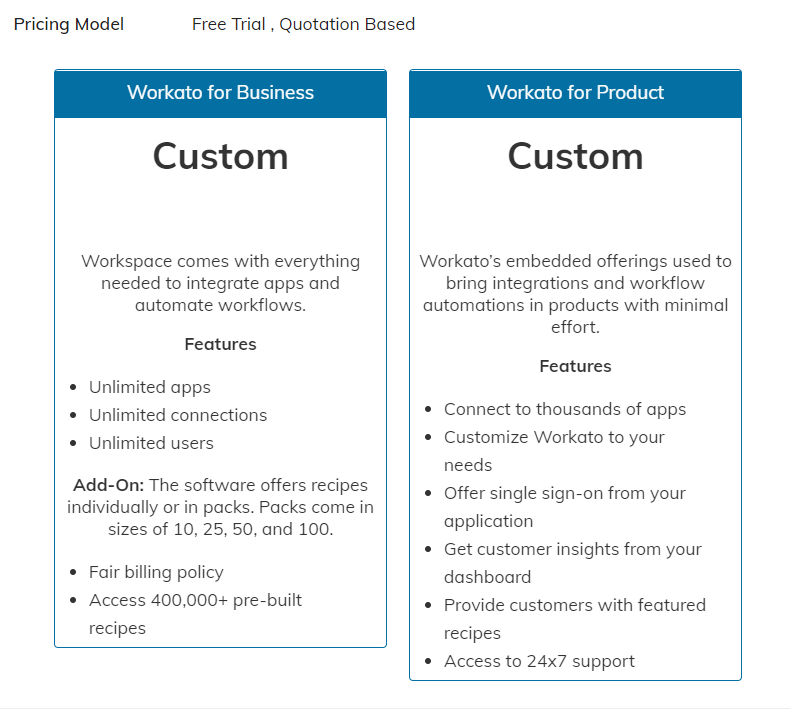
Freemium Model: In addition to the subscription-based model, Workato offers a freemium version of its platform. The freemium model allows users to access a limited set of integration capabilities for free. This approach is aimed at attracting potential customers and providing them with a taste of Workato’s functionality. Once users experience the benefits of the platform, they are more likely to upgrade to paid plans to access advanced features and full-scale automation capabilities.
Enterprise-Level Plans and Custom Solutions: For larger enterprises with complex integration needs, Workato offers enterprise-level plans and custom solutions. These plans are tailored to suit the specific requirements of larger organizations that demand robust and highly scalable integrations. Workato’s team collaborates closely with enterprise clients to design custom solutions that cater to their unique business workflows, ensuring seamless data exchange between critical applications.
Value-Based Pricing and Usage-Based Model: Workato’s pricing may also incorporate value-based pricing, where customers are charged based on the value they derive from the platform. For instance, pricing could be linked to the number of successful automated workflows or the volume of data processed through the platform. Workato may also offer a usage-based model, where customers pay based on the actual usage of the platform and the number of integration tasks executed.
Partner Ecosystem: Workato collaborates with a network of partners, including system integrators, technology partners, and consultants. This partner ecosystem helps extend the reach of Workato’s platform and enables seamless integration with other applications and services. Workato’s partners may also offer value-added services around the platform, contributing to the overall business ecosystem.
Customer Retention and Upselling: Workato places significant emphasis on customer retention and upselling. By consistently delivering a high-quality integration automation platform and providing exceptional customer support, the company fosters long-term relationships with its customers. Upselling opportunities arise as customers discover the platform’s capabilities and seek to expand their usage by upgrading to higher-tier plans or incorporating additional features.
In conclusion, Workato’s business model revolves around providing a flexible and scalable integration automation platform to businesses, catering to diverse customer needs through subscription-based pricing, freemium offerings, and custom enterprise solutions.
Valuation, Funding and Investors of Workato
Here is an explanation of the valuation, funding, and investors of Workato:
Valuation: Workato was valued at $5.7 billion in its Series E funding round in November 2021. This makes it one of the most valuable automation platforms in the world.
Funding: Workato has raised a total of $415 million in funding over 5 rounds. Its most recent funding round was a Series E round led by Tiger Global Management. Other investors in Workato include Sequoia Capital, Accel Partners, and SoftBank Vision Fund 2.
- Series A: In 2017, Workato raised $10 million in Series A funding round
- Series B: In 2018, Workato raised $25 million in Series B funding from Battery Ventures, Storm Ventures, ServiceNow, and Workday Ventures. This brings the total investment raised by Workato to $41M.
- Series C: In 2019, Workato raised $70 million in Series C funding led by Redpoint Ventures with participation from Norwest Venture Partners, Geodesic Capital, and existing investors Battery Ventures and Storm Ventures.
- Series D: In 2021, Workato raised $110 million in Series D funding at a $1.7 billion valuation. The round is led by Altimeter and joined by Insight Partners and our existing investors, Battery and Redpoint.
- Series E: In 2021, Workato raised $200 million in Series E funding at a $5.7 billion valuation led by Battery Ventures, with equal participation from Insight Partners, Altimeter Capital and Tiger Global. Geodesic Capital and Redpoint Ventures also participated in this round of financing.
- Investors: Workato’s investors are a mix of venture capital firms and strategic investors. Some of its most notable investors include:
- Tiger Global Management
- Battery Ventures
- Insight Partners
- Altimeter Capital
- Redpoint Ventures
- Geodesic Ventures
Workato’s valuation, funding, and investors are all indicative of the company’s success. The company is well-positioned for continued growth in the years to come.
Here are some of the key factors that have contributed to Workato’s high valuation:
- The growth of the automation market: The automation market is growing rapidly, and this is creating a growing demand for solutions like Workato’s.
- The strength of Workato’s platform: Workato’s platform is a powerful tool that can help businesses automate their workflows and improve their efficiency.
- The strong team of experienced leaders: Workato is led by a strong team of experienced leaders, including Vijay Tella, Pravin Rao, and Bhavin Turakhia. This team has a proven track record of success in the technology industry, and they are well-positioned to lead Workato to continued growth.
Workato’s high valuation is a testament to the company’s success. The company is well-positioned for continued growth in the years to come.
Also Read: FiveTran – Founders, Features, Business Model and Funding
To read more content like this, subscribe to our newsletter

